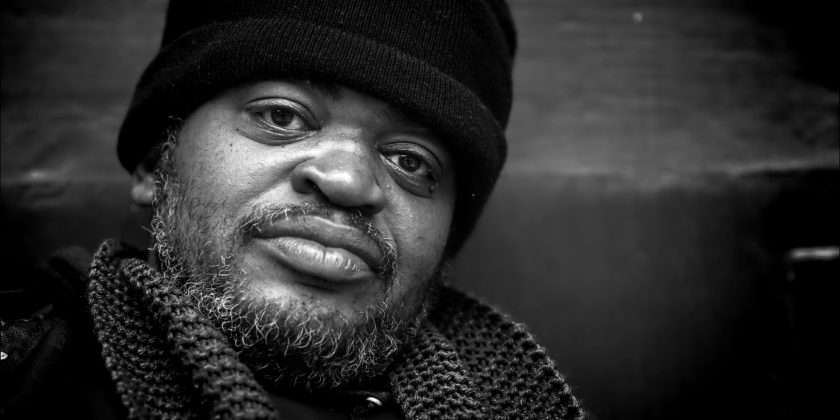If you are a Black -American with high blood pressure, The American Medical Association’s Eighth Joint National Committee (JNC8) has put out its recommendations for the different types of hypertension medications that you can use as a guide to getting it under control. Remember, medications along with exercise, no smoking and dietary changes are the keys to controlling your high blood pressure1. Jay Harold’s post, “ACE Inhibitors: 3 Warnings & 6 Side Effects,” talks about a class of medications that help control high blood pressure and heart failure.
Here are 5 surprising facts2 about High Blood Pressure from the Centers for Disease Control and Prevention (CDC):
- High blood pressure may be linked to dementia.
- Young people can have high blood pressure, too.
- High blood pressure usually doesn’t have any symptoms.
- Many people who have high blood pressure don’t know it.
- Women and minorities face unique risks when it comes to high blood pressure.
Please read the Jay Harold article on the New African-American High Blood Pressure Guidelines for more information about recommended medications for Black Americans.
Jay Harold will focus on patients of African descent. The JNC8 made some changes in their recommendations3 about the treatment of high blood pressure.
The changes in JNC 8 are crucial since many Black Americans did not know or follow the previous guidelines. Recommendation 7 of JNC8 states that a thiazide-type diuretic or Calcium Channel Blocker (CCB) should be used on patients of African descent. Recommendation 8 says that for people with chronic kidney disease (CKD), they should add an Angiotensin II Receptor Blockers or Angiotensin-converting enzyme inhibitors.
Chronic Kidney Disease is a major problem for Black Americans
Due to high rates of diabetes, high blood pressure and heart disease, Blacks and African Americans have an increased risk of developing kidney failure. Approximately 4.9 million African Americans over 20 years of age are living with either diagnosed or undiagnosed diabetes according to the National Kidney Foundation4.
Jay Harold has previously written posts on Calcium Channel Blockers and Thiazide-type diuretics. The focus of this post will be on Angiotensin-Converting Enzyme (ACE) inhibitors.
How ACE inhibitors5 help
ACE inhibitors are used to treat heart disease. These medicines make your heart work less hard by lowering your blood pressure. This keeps some kinds of heart disease from getting worse. Most people who have heart failure take these medicines.
These medicines treat high blood pressure, strokes, or heart attacks. They may help lower your risk of stroke or heart attack.
They are also used to treat diabetes and kidney problems. This can help keep your kidneys from getting worse. If you have these problems, ask your healthcare provider if you should be taking these medicines.
Angiotensin-Converting Enzyme (ACE) inhibitors6 work by decreasing certain chemicals that tighten the blood vessels, so blood flows more smoothly, and the heart can pump blood more efficiently. Below is a compiled list of their recommendations forAngiotensin-Converting Enzyme (ACE) inhibitors. This is not a complete list of medications!
| Brand Name | Generic Name |
|---|---|
| Aceon | Perindopril |
| Accupril | Quinapril |
| Altace | Ramipril |
| Capoten | Captopril |
| Lotensin | Benazepril |
| Mavik | Trandolapril |
| Monopril | Fosinopril |
| Prinivil | Lisinopril |
| Univasc | Moexipril |
| Vasotec | Enalapril |
| Enalaprilat | |
| Zestril | Lisinopril |
ACE Inhibitors: What You Should Know
Warnings
- Women who are pregnant should talk to their doctor about the risks of using these drugs late in pregnancy.
- People who have kidney or liver problems, diabetes, or heart problems should talk to their doctor about the risks of using ACE drugs.
- People taking diuretics (water pills) should talk to their doctor about the risks of using ACE drugs.

Common Side Effects of ACE inhibitors include a cough and Problems sleeping
Common Side Effects
- Cough
- Dizziness
- Feeling tired
- Headache
- Problems sleeping
- Fast heartbeat
Warning Signs
Call your doctor if you have any of these signs:
- Chest pain
- Problems breathing or swallowing
- Swelling of the face, eyes, lips, tongue, or legs
For more information about the risks and side effects of each drug, check Drugs@FDA.
Why Controlling High Blood Pressure is Important!
High blood pressure is a serious illness. This is particularly the case for Black Americans since over forty percent of Black Americans have high blood pressure8 according to Centers for Disease Control and Prevention (CDC).
High blood pressure is often called a “silent killer” because many people have it but do not know it. Some people do not feel sick at first. Over time, individuals who do not get treated for high blood pressure can get very ill or even die.
High blood pressure can cause:
- kidney failure

High blood pressure can cause headaches, dizziness or an upset stomach.
- stroke
- blindness and
- heart attacks.
There is good news.
There are life-saving medicines people can take every day to help control their high blood pressure. Individuals who eat healthy foods, exercise, and take their medicines every day can monitor their blood pressure.
Take your blood pressure medicines
It is essential to take your blood pressure medicines every day. Take your medicines even when your blood pressure comes down … even when you do not feel sick. Do not stop taking your medicine until your doctor says that it is OK.
Most people who take high blood pressure medicines do not get any side effects. Like all medicines, high blood pressure medicines can sometimes cause side effects. Some people have common problems like headaches, dizziness or an upset stomach. These problems are small compared to what could happen if you do not take your medicine.
.
Understanding your blood pressure — What do the numbers mean?

People who have kidney or liver problems, diabetes, or heart problems should talk to their doctor about the risks of using ACE drugs.
When you have your blood pressure taken, you are told two numbers, like 120/80. Both numbers are important.
The first number is your pressure when your heart beats (systolic pressure).
The second number is your pressure when your heart relaxes (diastolic pressure).
For more information about the risks and side effects of each drug, check Drugs@FDA.
Jay Harold knows the potential problems with Angiotensin-Converting Enzyme (ACE) inhibitors since he has taken them for years. Working with your doctor to find the best ACE inhibitors for you is important to minimize side effects. Learn more about side effects by reading an article from Jay Harold on this topic. You have a responsibility to yourself and your family to maintain good health. Do everything you can to achieve this goal.
Enjoyed this post? Share it and read more here. Jay Harold has put together a Resource page that you may find useful when trying to improve your health and wealth. Please take this advice from Muhammad Ali and give back to others. “Service to others is the rent you pay for your room here on earth.”
Bibliography
- https://www.cdc.gov/bloodpressure/control.htm
- https://www.cdc.gov/Features/HighBloodPressure/
- http://jamanetwork.com/journals/jama/fullarticle/1791497
- https://www.kidney.org/news/newsroom/factsheets/African-Americans-and-CKD
- https://medlineplus.gov/ency/patientinstructions/000087.htm
- https://medlineplus.gov/druginfo/meds/a692051.html
- https://www.fda.gov/ForConsumers/ByAudience/ForWomen/ucm118594.htm#ACE_Inhibitors
- https://www.cdc.gov/bloodpressure/facts.htm




